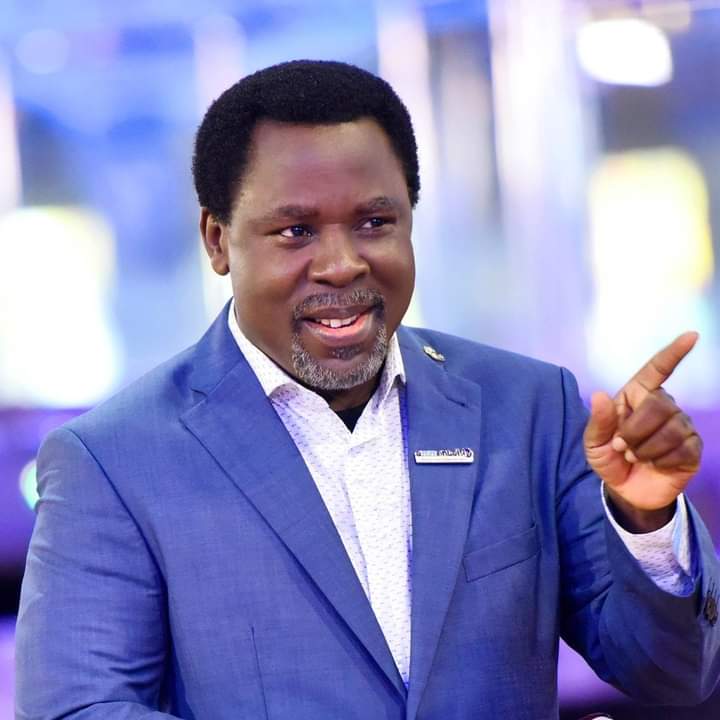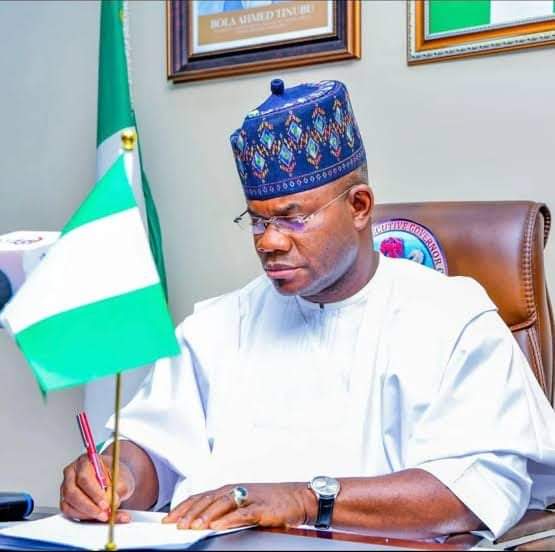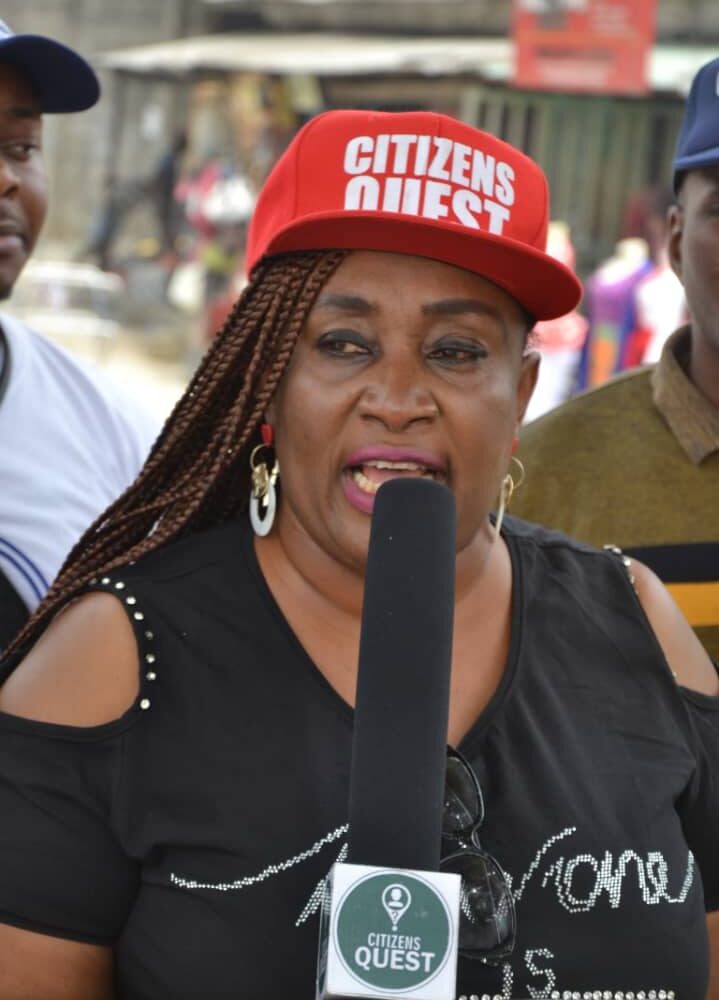I was taken aback on the evening of 9 January 2009 when my principal, the late President Umaru Musa Yar’Adua asked, “Who is Prophet Joshua?” I wasn’t sure how to respond in case the late cleric had been recommended to him. Apparently sensing my unease, he explained what led to the question. Following the Economic Community of West African States (ECOWAS) meeting which ended that day, he (Yar’Adua) had asked then president of Ghana, Professor John Atta Mills, to stay the night in Abuja so they could have dinner together. But the man insisted he would spend the weekend in Lagos with the said Prophet. “I have not heard the name before,” the president told me while reeling out the names of prominent Christian clerics in the country with whom he was familiar. With that, I felt comfortable enough to share what I had read and heard about the late Pastor Temitope Joshua whom I never met.
What I found remarkable about the episode was that Atta Mills had only been sworn in as Ghanaian president five days before arriving Abuja for the ECOWAS session. Yet, he chose to spend the first weekend of his tenure in Lagos to attend The Synagogue Church of all Nations (SCOAN) thanksgiving service. “I am no stranger to the Synagogue. Indeed, I have been here very regularly. And I have known the man of God for more than 10 years,” late Atta Mills told the congregation on Sunday 11 January 2009 while crediting his victory at the polls to Joshua’s prediction. And we are talking about a professor of law who obtained his LLM from the London School of Economics and Political Science and PhD at 27 from the School of Oriental and African Studies. “Now, if there is anybody who does not believe in God, I would say our elections should change that person’s mind. God gave us more than we asked for,” enthused Atta Mills who then faced Joshua, “Man of God, I want to thank the Almighty for using you and many others.”
From the late President Frederick Chiluba of Zambia to the recently ousted President Omar Bongo of Gabon, to former President Joyce Banda of Malawi, to South African Zulu King Goodwill Zwelithini, to the late former Zimbabwean Prime Minister, Morgan Tsvangirai, numerous African leaders (political and traditional) placed great faith in the late Joshua as their spiritual mentor. However, a new documentary by the British Broadcasting Corporation (BBC) has, to put it mildly, painted a rather unflattering profile of the cleric. Since the serious allegations are already in the public domain, I see no point in repeating them here.
Although SCOAN has issued a rebuttal, arguing that the BBC turned “itself into a weapon for a hatchet job as gangsters in the garb of journalism with a destructive ulterior motive for personal gains against a perceived enemy”, the only official line in the documentary is that most of the allegations now being peddled were also levelled against Joshua when he was alive, and none was proven. That may not be entirely correct. In September 2014, for instance, there was a building collapse at the SCOAN headquarters in Lagos that claimed several lives, mostly foreigners. Following the tragedy, the late Joshua told tales of how he received a call that a mysterious aircraft was hovering over his prayer room before getting another call shortly after “that the jet has moved to the church and that was it.” Not only was his claim disputed, but the Lagos State Coroner’s Inquest also indicted the church leadership for “criminal negligence” and recommended prosecution for the death of 116 persons. 84 of those unfortunate victims were South Africans, 22 were Nigerians, two each were Beninoise and Togolese and one, Zimbabwean. The nationalities of five could not be ascertained. According to the Coroner’s Court, presided over by Chief Magistrate Oyetade Komolafe, the Church did not obtain the necessary permit or approval before commencing construction of the building.
I am aware that the late Joshua means many things to many people. And I have seen some pushback against the BBC for airing the documentary. Incidentally, Pastor Chris Okotie of the Household of God had openly challenged Joshua’s doctrines and practices when he was alive, so controversy had always swirled around the man. My sister, Dr Abimbola Adelakun of the University of Texas, Austin, United States, also wrote several uncomplimentary articles about Joshua and his ministry. Now that he is late, what is being imputed by the BBC are serious crimes not only against Nigerians but also foreigners. It is therefore in the interest of our country, and SCOAN itself, that the allegations be fully investigated. It is also important to stress that until then, the late Joshua remains innocent in the eyes of the law.
However, we should all be concerned about the role of religion in Nigeria. In September 2019, as many as 300 chained inmates, including children, were rescued by thepolice from the‘Sheikh Ahmad Bin Hambal Islamic School and Rehabilitation Centre’ in Kaduna State. It was a story that caught global attention as survivors shared sordid tales of torture, sexual exploitation and bestiality. Today, nobody knows what has happened to those hapless victims and there is no report that anyone has been brought to justice for the heinous crime against humanity. Four years ago, Dr Hadiza Kere Abdulrahman, a lecturer in Inclusive Education, Bishop Grosseteste University, United Kingdom, used the sordid Kaduna spectacle to explain the socio-political dynamics in Nigeria and the lessons we have all refused to learn.
According to Abdulrahman, “the abuse found in these so-called ‘Qur’anic schools’ is replicated in several other contexts in Nigeria—in homes with people hired as domestic help being whipped for minor misdemeanors.” Such abuse, she further stated “is also replicated in other religious establishments where people are taken for deliverance, in Nigeria’s prison system where everything goes, and in government boarding schools which can sometimes be brutal. This abuse is seen even in the few government-owned rehabilitation facilities where inmates are shackled.” She then concluded: “It would be a mighty shame—and a missed opportunity—if Nigerians didn’t use the opportunity of the horror stories to take a hard look at themselves.” Of course, no lessons were learnt from that tragic episode and many already believe that the BBC documentary on Joshua may also compel no action. Yet, this should be another teachable moment. Just yesterday, Daily Trust newspaper published an investigative report on one Hassan Patigi, a preacher and exorcist who draws huge crowds in Kwara and Niger States where he abuses and defrauds the sick people he claims to be healing.
Since African culture frowns at speaking ill of the dead, it is understandable that some would question the motive of the BBC in running a documentary on Joshua who can no longer defend himself. But those who follow the media outfit, and its crime investigation series, know there is nothing unusual about this episode. ‘The Reckoning: the horrendous true story behind the Jimmy Savile case’ for instance details allegations of sexual abuse against British television personality Jimmy Savile. It was only after his death in 2011 that numerous allegations emerged about his predatory behaviour, hence the posthumous documentary. Similarly, ‘House of Maxwell: Like Father, Like Daughter’ is about Ghislaine Maxwell, currently in jail for helping American billionaire, Jeffrey Epstein (who committed suicide in detention) to sexually abuse teenage girls. She is the daughter of the deceased (and disgraced) newspaper tycoon Robert Maxwell.
Because the BBC documentary on Joshua is a media investigation, it does not on its own convict of guilt. But the allegations deserve to be properly investigated by appropriate authorities for the good of society. Beyond that, it is also important for the leadership of both the Christian Association of Nigeria (CAN) and Pentecostal Fellowship of Nigeria (PFN) to be interested in this matter. There have in recent times been many reports of unwholesome practices by people who claim to be Christian clerics of various denominations. Many of the reports border on abuse of their members. Some are told to eat grass. Some are stamped upon. Some, especially female members, are made to unclothe before clerics who openly fondle their private parts. Tales of midnight ‘deliverances’ that end in bed abound. All these in the name of performing ‘miracles’ by perverts who prey on the ignorance and desperation of our people.
This of course is not a new phenomenon, and the challenge is global. Literature that readers may find useful include ‘Soft Shepherd or Almighty Pastor: Power and Pastoral Care’ by Annemie Dillen and Cristina Traina’s ‘A Wolf in Sheep’s Clothing: Dealing Honestly with Pastoral Power’. Triana, whose thesis focuses on “the undeniable power of many kinds—social, ecclesial, and psychological, among others—that resides with the pastor,” argues that the unequal power relationship imposes both a measure of responsibility and duty of care. “When a person enters a church or a church-related environment and seeks direct help from and relationship with a pastor, in a very visceral way, God has been called into the conversation, too, and for some of the most broken persons, the minister’s words and God’s words become one and the same.”
What the BBC documentary has shown quite clearly is that healthy boundaries must be set between clerics and members of their congregations. And that is where the problem lies in Nigeria. As we can see from other areas of our national life, boundary violations derive from unequal powers and to the extent that these dynamics are now very prevalent in the church, we must begin to deal with them.
Overall, regardless of what anybody may believe concerning the allegations against Joshua, four critical issues have been raised. First is how easy it is for religion to mask sundry violations of human rights. Second is an unfortunate anachronism about our society. A supposedly modern nation based on rational principles is still chained to primordial superstitions and practices, patronized openly by those in power and the guardians of civic morality and conduct. And because of that, human rituals, recourse to strange ‘prayer sessions’, seeking occult solutions to basic human problems or health afflictions requiring simple medical cures, etc. are now the order of the day. Third, in Nigeria today, religion and politics continue to meet and mix. It is therefore little surprise that so-called men of God use the power of belief to chain their followers to degrading abuses just as spurious politicians hoodwink the poor and helpless to steal the commonwealth. Four, in a system where powerful people permit themselves the indulgence of operating above the law, those who are supposed to set examples for the rest of society can only end up as outlaws. When that happens, we are all losers.
To change the narrative, we must begin to hold people in power—whether it be in the political, academic, business or religious realm—accountable for their actions.
• You can follow me on my X (formerly Twitter) handle, @Olusegunverdict and on www.olusegunadeniyi.com
Motives Brutal Governments
Science Psychology Degree





